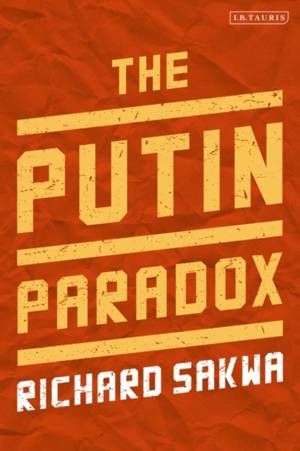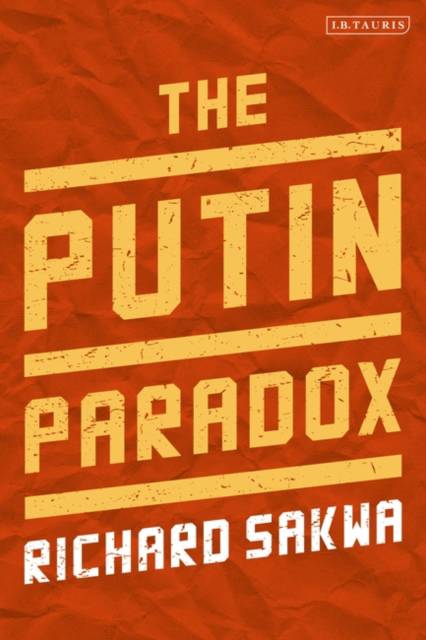
Bedankt voor het vertrouwen het afgelopen jaar! Om jou te bedanken bieden we GRATIS verzending (in België) aan op alles gedurende de hele maand januari.
- Afhalen na 1 uur in een winkel met voorraad
- In januari gratis thuislevering in België
- Ruim aanbod met 7 miljoen producten
Bedankt voor het vertrouwen het afgelopen jaar! Om jou te bedanken bieden we GRATIS verzending (in België) aan op alles gedurende de hele maand januari.
- Afhalen na 1 uur in een winkel met voorraad
- In januari gratis thuislevering in België
- Ruim aanbod met 7 miljoen producten
Zoeken
Omschrijving
Vladimir Putin has emerged as one of the key leaders of the twenty-first century. However, he is also recognized as one of the most divisive. Abroad, his assertion of Russia's interests and critique of the western-dominated international system has brought him into conflict with Atlantic powers. Within Russia, he has balanced various factions within the elite intelligentsia alongside the wider support of Russian society.
So what is the 'Putin paradox?' Richard Sakwa grapples with Putin's personal and political development on both the international political scene and within the domestic political landscape of Russia. This study historicizes the Putin paradox, through theoretical, historical and political analysis and in light of wider developments in Russian society. Richard Sakwa presents the Putin paradox as a unique regime type - balancing numerous contradictions - in order to adapt to its material environment while maintaining sufficient authority with which to shape it.
So what is the 'Putin paradox?' Richard Sakwa grapples with Putin's personal and political development on both the international political scene and within the domestic political landscape of Russia. This study historicizes the Putin paradox, through theoretical, historical and political analysis and in light of wider developments in Russian society. Richard Sakwa presents the Putin paradox as a unique regime type - balancing numerous contradictions - in order to adapt to its material environment while maintaining sufficient authority with which to shape it.
Specificaties
Betrokkenen
- Auteur(s):
- Uitgeverij:
Inhoud
- Aantal bladzijden:
- 344
- Taal:
- Engels
Eigenschappen
- Productcode (EAN):
- 9781788318303
- Verschijningsdatum:
- 6/02/2020
- Uitvoering:
- Hardcover
- Formaat:
- Genaaid
- Afmetingen:
- 156 mm x 234 mm
- Gewicht:
- 657 g

Alleen bij Standaard Boekhandel
+ 373 punten op je klantenkaart van Standaard Boekhandel
Beoordelingen
We publiceren alleen reviews die voldoen aan de voorwaarden voor reviews. Bekijk onze voorwaarden voor reviews.









